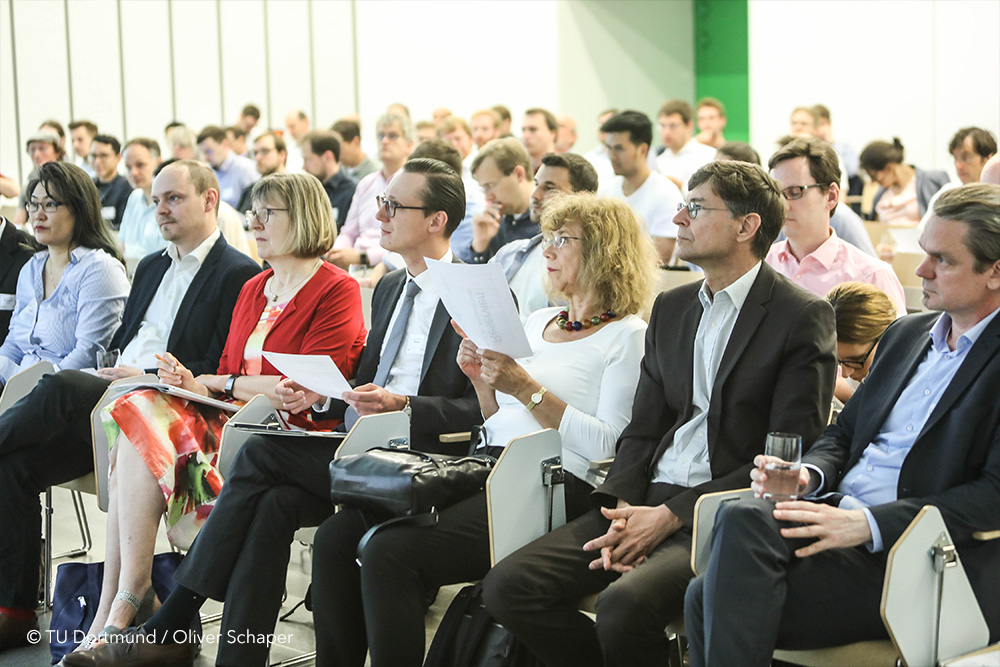Over 100 experts exchange ideas on the subject of machine learning
05. June 2019 | Dortmund
On Wednesday, 5 June, representatives of the four German competence centers for Machine Learning as well as experts from industry, business and science met for a joint conference in Dortmund for the first time. The conference was organized by the Rhine-Ruhr Machine Learning Competence Center (ML2R).
The first joint status conference brought together researchers from all Machine Learning projects in Germany funded by the Federal Ministry of Education and Research (BMBF). In addition to the four Competence Centers for Machine Learning, these include a further 45 research projects and qualification measures. In addition, representatives of the Big Data Competence Centers and the German Research Institute for Artificial Intelligence (DFKI) were present.
Application areas from logistics to meteorology to wind power plants
The participants from industry, the private sector and science took the opportunity to exchange ideas and network with each other. In around 30 lectures, the diverse fields of application of Machine Learning became clear – from logistics, transport and production, meteorology, biology and a broad medical field of application to wind turbines and data security in companies.
After a welcoming address by Dr. Moritz Gerlach, who is in charge of the Federal Government’s AI strategy at the BMBF, Prof. Katharina Morik from the TU Dortmund presented some of the current challenges for Machine Learning. Prof. Morik is head of the Artificial Intelligence department at the Faculty of Computer Science and, together with Prof. Stefan Wrobel from the University of Bonn, spokeswoman for the ML2R competence center. The full-day seminar took place at the LogistikCampus of the TU Dortmund.
Poster exhibition and short lectures
A change of location in the neighbouring test laboratory of the conveying and storage department of the TU Dortmund provided a change of pace during lunchtime. Here a poster exhibition of all present projects took place. In addition, the 29 projects on qualification measures had the opportunity to present their projects in 90-second short presentations.
The event provided an excellent platform for promoting the transfer of knowledge from science to industry.


